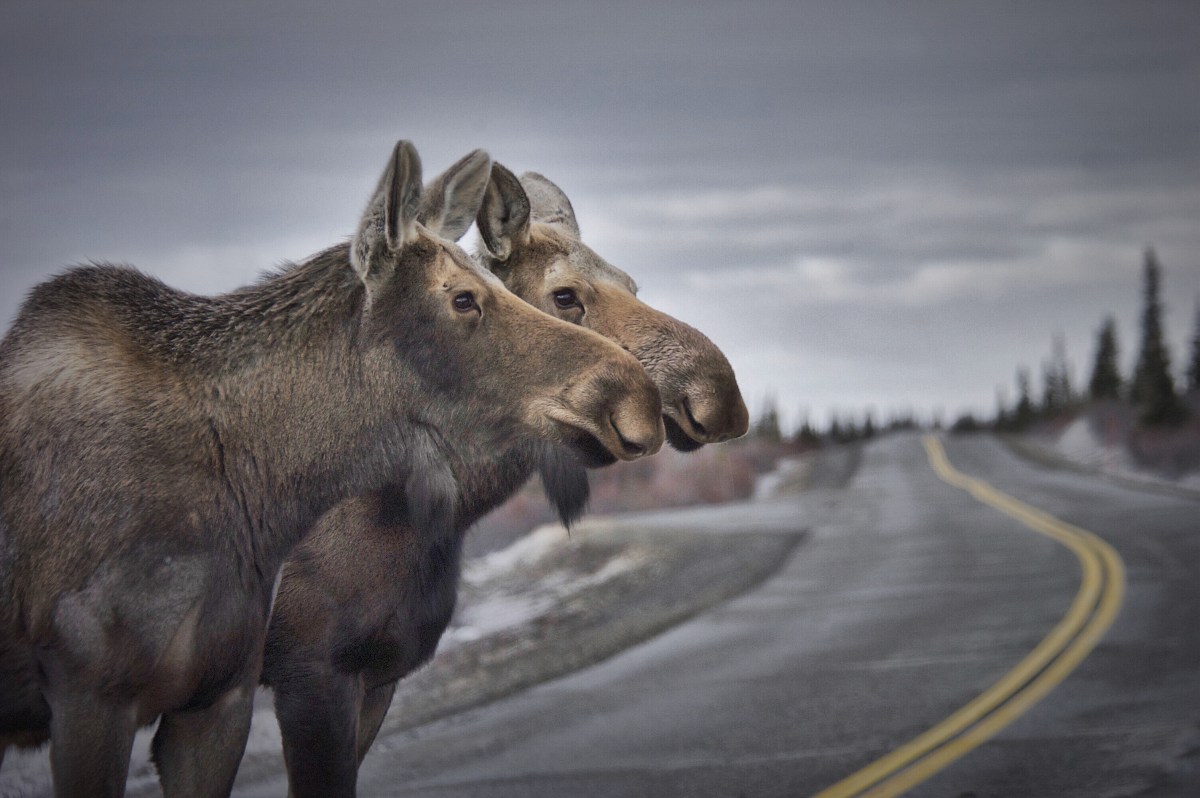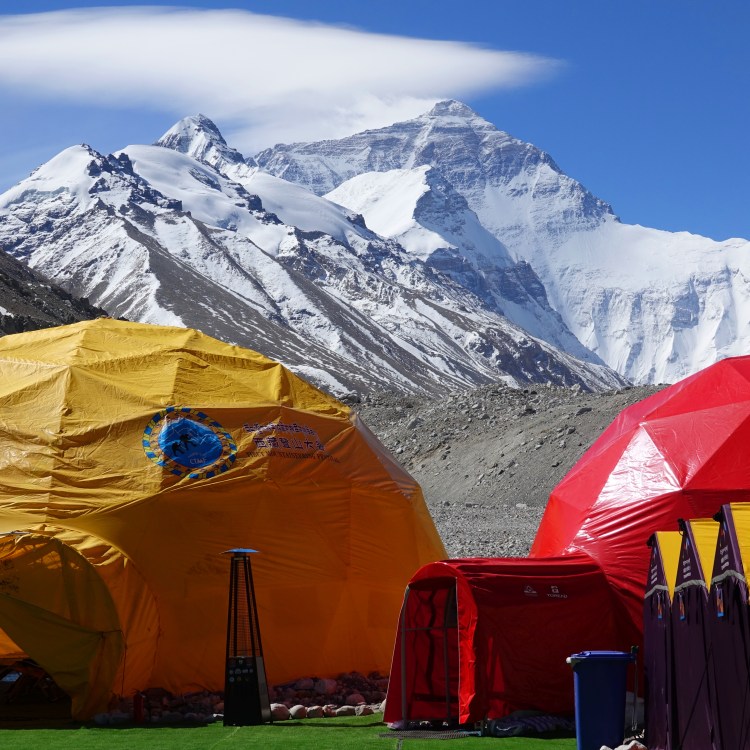Alaskans are the hipsters of the roadkill community.
The United States’ northern most residents have been hauling away freshly annihilated meat for decades. It’s business as usual in Alaska..
“It goes back to the traditions of Alaskans: We’re really good at using our resources,” Alaska State Trooper David Lorring told Adventure Journal. “We have plenty of people willing to take a rotten, nasty moose,” he added.
Wildlife biologist Jeff Selinger says Alaskan roadkill rarely goes bad because the cold climate limits the spread of wildlife diseases that can ruin the meat.
One moose could equal up to 350 pounds of good meat- enough to feed a family for a year.
People in the 49th State are quick to report and haul away roadkill. State Troopers are equipped with local resources to call on– anyone from a charity to a lone hunter could be notified of a fresh death. Sometimes the Trooper will stay put until the salvager arrives. It’s a competitive industry.
One-time vegan Joanna Young, a geoscientist and educator, moved to Alaska eight years ago and quickly became a new person: “Fast forward to three weeks ago: I am out in the middle of the night, covered in blood, using a battery powered saw to saw through a moose leg. The Joanna of 10 years ago would have never expected this,” Young told Adventure Journal. “It was surreal.”
If you’re a newb and looking for some fresh meat, don’t worry, there are plenty of folks willing to help and plenty of folks are taking it upon themselves to learn.
“There is no stigma around wanting to be a new learner,” Young explained. “People are really motivated to do things themselves, learn things themselves, build their own structures, get their own food, live their own way.”
Statewide bans on picking up roadkill began in the 1950s with California, Washington, Oregon, and Texas all passing laws prohibiting the act.
Washington legalized it again in 2016 and, the next year, Oregon did the same.
In the 1800s, eating lobster and wild salmon, an expensive protein these days, was thought to be disgusting.
Maybe in 100 years eating roadkill will be a luxury few can afford.
Thanks for reading InsideHook. Sign up for our daily newsletter and be in the know.


















